Thomas Pashko
-
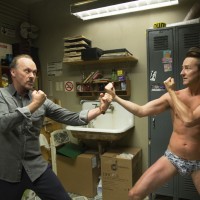
Birdman
Director Alejandro González Iñárritu’s previous films (Biutiful, 21 Grams) have been derided by some critics as “misery porn.” I’ve avoided his previous films for this reason. As an Iñárritu novice, I found his newest film Birdman to be mostly (but not entirely) free of misery.
-
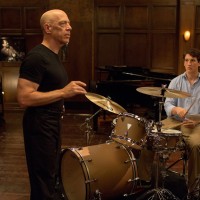
Whiplash
What is the price of artistic perfection? That’s the central question at the heart of Whiplash, the new drama from writer-director Damien Chazelle (Guy and Madeline on a Park Bench). This semi-autobiographical picture is a visceral one, balancing precise technique and animal ferocity. The result is a gorgeous gut-punch of a movie.
-

Pledges and populations
Brian Bowman is already breaking new ground as mayor of Winnipeg. At his swearing-in ceremony on Nov. 4, Bowman chose to have the meeting blessed by an Aboriginal elder. Bowman, who is Métis, is Winnipeg’s first Aboriginal mayor, and this gesture is potentially illustrative of a new level of outreach between City Hall and Winnipeg’s minority communities.
-

Whose House? Curtis’s House.
Curtis L. Wiebe could certainly be described as a Renaissance Man. In addition to being one of Winnipeg’s most interesting filmmakers, Wiebe is an accomplished artist, actor, art teacher, puppeteer, sculptor, musician and mixed media artist. His films creatively blur the line between live action, puppetry and animation, and his 2014 short Of Truth and Magic is one of my favourites of the year.
-
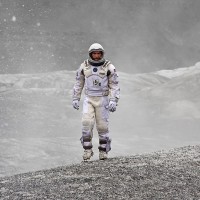
Interstellar
A lot of the early word-of mouth on Interstellar was that the film was good, but didn’t deliver on the promise of a great director like Christopher Nolan (The Dark Knight Rises) working in the beloved space opera genre. Well, those early whispers are wrong. Interstellar delivers, and then some.
-
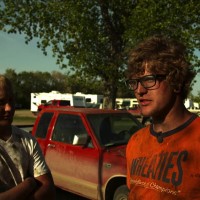
The Overnighters
Hydraulic fracking has turned the sleepy town of Williston, North Dakota, into a hub of the state’s oil boom. The new oil money has drawn hopeful workers from all over the economically depressed United States to the town (its population nearly doubled from 2010 to 2013). However, a lack of affordable housing in the area has created an epidemic of homelessness in the town.
-

Ida
Ida, the newest film from director Pawel Pawlikowski (My Summer of Love), is a rare accomplishment. In the tradition of European masterworks like Andrei Rublev or Grand Illusion, it manages to be about a nation and the cataclysms that shaped it, simply by telling a human story. Ida isn’t a throwback to those classics, but it accomplishes the same feat they do: it uses the medium’s most basic elements to create a pure cinematic experience. Free of genre, spectacle or pretension, it’s cinema at its best.
-
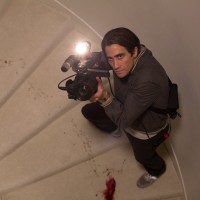
Nightcrawler
I had a bad feeling during the first few scenes of Nightcrawler. Between the stilted dialogue, heavy-handed media satire and Jake Gyllenhaal’s “look how creepy I am” performance, the film almost totally lost me. “Oh no,” I thought. “Here’s a movie that’s trying way too hard to be something, instead of just being what it wants to be.”
-

A need to know basis
On the morning of Oct. 22, after murdering Cpl. Nathan Cirillo at the National War Memorial, a gunman entered the Centre Block on Parliament Hill and opened fire, injuring three people before being incapacitated.
-

Rock the… nope
Young people, and University of Winnipeg students in particular, are notoriously passionate about political and social issues. Yet it seems young Winnipeggers are disengaged from local politics.
-
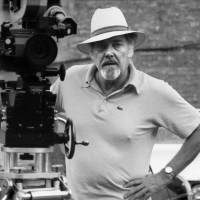
Altman
It’s hard to overstate the influence of director Robert Altman. In his nearly 60 years as a filmmaker, he pioneered a naturalistic style utilizing ensemble casts, improvisational dialogue and a subversive attitude that helped define the New Hollywood of the 1970s. He helmed such classics as MASH, McCabe & Mrs. Miller and Nashville, as well as cult favourites Popeye and Secret Honor. He made stars of Donald Sutherland, Shelley Duvall and Elliott Gould.
-
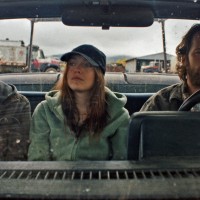
Night Moves
The term “neo-neo realism” has been used by some to describe director Kelly Reichardt’s style. Her use of long takes, naturalistic performances and minimalist editing in Wendy and Lucy and Meek’s Cutoff have made that style the defining characteristic of her work over story or genre trappings. Even Meek’s Cutoff, which could have been a standard western, defies genre classification. In her newest, Night Moves, she’s managed to make a tense and suspenseful thriller that never betrays her style.
-
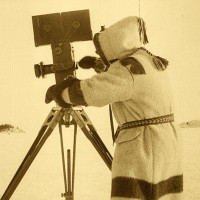
On the Trail of the Far Fur Country
Kevin Nikkel’s On the Trail of the Far Fur Country is a fascinating documentary about Canada, its history and the movies. It’s a reminder that cinema is more than just entertainment: it’s a mirror, reflecting our culture and identity back to us so we can observe and learn from it. A documentary about another documentary might not sound accessible, but On the Trail moved me as a Canadian as much as a film lover.
-

Björk: Biophilia Live
Björk: Biophilia Live is a concert film of the stage show adapted from Biophilia, Björk’s 2011 album/app/art project. The film opens with narration from English broadcaster David Attenborough, who promises that the following performance will offer insight into the intersections between nature, music and technology. I’m not sure Biophilia offers insight into anything other than Björk as an artist. That’s fine, if you’re interested in her as an artist. As someone with only a casual interest in Björk’s post-Sugarcubes career, I found the film mostly a curiosity.
-

Living in the now
This year has been a big one for mindfulness. The centuries-old principle of Buddhist practice, defined as “the intentional, accepting and nonjudgmental focus of one’s attention on the emotions, thoughts and sensations occurring in the present moment,” has been secularized and diversified in the 21st century.
-

Enjoy the darkness
It’s a freezing cold Sunday afternoon. The members of The Will to Power are in my car. The coffee shop we’d arranged to meet in is too crowded and noisy, so we’ve relocated to the Safeway parking lot. Despite the overcast skies, and the fact that little light penetrates my foggy windows, lead vocalist and songwriter James Hofer is wearing sunglasses.
-
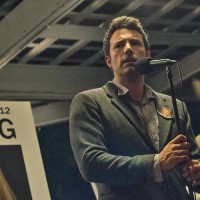
Gone Girl
I was very entertained by Gone Girl. I want to make that totally clear, right off the bat, because I have a lot of thoughts about the film, and a lot of them aren’t positive. Do I think people should see this movie? Definitely. But that doesn’t change the fact that it’s kind of a mess.
-

Me, Myself and Mum
Me, Myself and Mum introduces its protagonist and narrator, Guillaume, as a boy who is a girl. What that means, exactly, is deliberately ambiguous. He’s flamboyantly effeminate, that much is clear. Is he gay? Transgender? Is this just a surreal narrative gimmick? Even Guillaume isn’t sure. It’s a fun question, and it works right up until the moment the movie answers it.
-
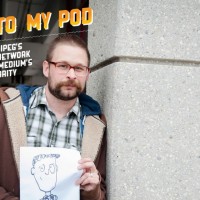
Come to my pod
Less than a decade ago, podcasts were virtually unheard of. A 2005 New York Times article, The Podcast as a New Podium, clumsily outlined the new medium, making it sound about as appealing and mainstream as stamp collecting or CB radio. But with a recent explosion of new shows in Winnipeg, as well as the emergence of the city’s first podcast network last month, it’s becoming abundantly clear that podcasting is no longer the medium of the future: it’s the medium of the present.
-
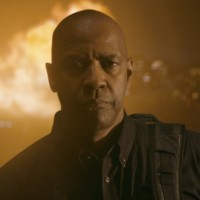
The Equalizer
The Equalizer is based on a TV show from the ‘80s starring Edward Woodward. I’ve never seen that show, so I can’t vouch for how faithful the new film adaptation is to the series. All I can attest to is how well 2014’s The Equalizer works as a film. That is to say, not very well at all.
